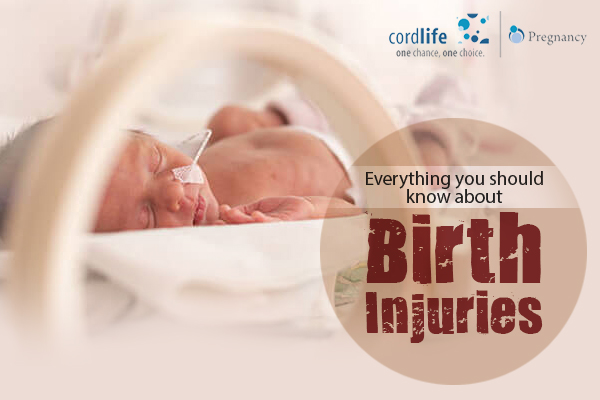Table of Contents
Injuries or trauma that occurs before, during or immediately after the birthing process is known as birth injuries. Birth injuries are unfortunate and often occur due to medical negligence. While some injuries are mild, others can be severe and life threatening. Some injuries even leave the child disabled for a lifetime.
Types of Birth Injuries
Birth injuries can affect any part or organ of the infant. Organs are delicate and vulnerable during birth and a little bit of mistake can cause an injury. The most common injuries are listed below.
Brain Injury
Brain is delicate during birth and easily prone to injuries. The most common brain injuries are as follows.
- Hypoxic-Ischemic Encephalopathy (HIE) is caused due to lack of oxygen and blood to the brain.
- Infant brain hemorrhage and hematoma are caused when the blood circulation to the brain is damaged causing either bleeding (hemorrhage) or accumulation (hematoma). When blood accumulates between brain and skull it is known as subgaleal hematoma.
- Cephalohematoma is similar to subgaleal hematoma but it doesn’t cause permanent damage unlike the later.
- Periventricular Leukomalacia (PVL) is a specific injury that can cause cerebral palsy.
- Infant skull fracture is also an injury that can lead to bleeding within the brain and brain damage.
- Infant Cervical Dystonia can also happen due to brain trauma.
Nerve Injury
- When the nerves that control the arms and hands, known as brachial plexus, become injured, an infant becomes unable to flex and rotate their arm. This injury is also known as Erb’s Palsy, this usually resolves itself.
- Klumpke’s palsy occurs when nerves in the lower hand gets damaged.
- Horner’s syndrome occurs when the nerve between the brain and eye get damaged.
Bone injury
Fractures are quite common, especially during breech deliveries. The most common fractures are collar bone, bone cartilage and long bones.
Cranial Nerve Injury
Injuries to the cranial nerve can cause partial face paralysis, where the infant would not be able to move one side of the face. This is usually caused by improper use of forceps. Mild cases may heal naturally; however, serious cases require surgery.
Spinal Cord Injury
Spinal cord injury is a serious matter and can lead to hemorrhages, respiratory failure, and overall weakness.
Intra-abdominal Hemorrhage
This kind of injury usually affects the liver in the worst way. However, other organs in the abdominal area can also get affected.
Eye Injury
The small blood vessels in the eyes of the baby, breaks or tears during delivery causing mild to severe injuries.
Meconium Aspiration Syndrome (MAS)
Babies release a type of faeces called meconium, after birth. If a baby discharges this waste inside the womb and then inhales or swallows it, they develop MAS, which can cause difficulty in breathing, lung damage, or even death.
Causes of Birth Injuries
Birth injuries are more common when:
- The baby is large, in a breech position or born prematurely
- Prolonged or difficult labour
- The mother is obese or overweight
- Devices like forceps, suction or vacuumare used to deliver the baby
Treatment of Birth Injuries Depending on the extent or severity of the birth injury, it can be treated with surgery, medicines, and physical and occupational therapies. Major injuries like Cerebral Palsy have shown improvement with baby’s cord blood stem cells.
